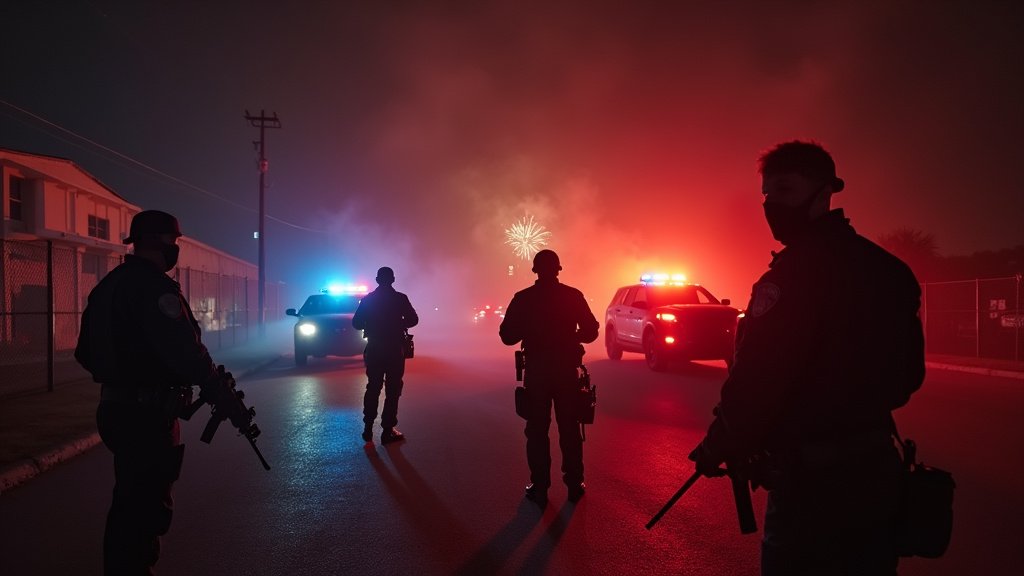Austin, Texas – The city of Austin has initiated a groundbreaking pilot program aimed at revolutionizing the response to severe mental health incidents. Dubbed the Austin Field Integrated Response Support Team (AFIRST), this new initiative deploys a multidisciplinary unit to handle high-acuity mental health emergencies, marking a significant shift from traditional law enforcement-led responses.
A New Approach to Crisis Intervention
The AFIRST program, which began in mid-October, features a team composed of a police officer, a paramedic, and a mental health clinician. This integrated unit will proactively patrol and respond to 911 calls involving individuals experiencing severe psychological distress. Previously, police officers would typically secure a scene before mental health and emergency medical services personnel could enter. The AFIRST model prioritizes having the mental health clinician and paramedic be the primary responders when it is safe to do so, facilitating more efficient de-escalation and a direct connection to care.
This approach is a direct response to growing recognition of “significant adverse events” nationally during law enforcement responses to individuals in crisis. “This program that we’re creating has not been done before in the United States,” stated Dr. Mark Escott, the city’s chief medical officer. The goal is to ensure individuals receive appropriate and timely care, improving patient outcomes and better utilizing professional resources.
Background and Evolution of Mental Health Response in Austin
Austin has been progressively enhancing its mental health crisis response strategies for years. A 2019 report from the Meadows Mental Health Policy Institute laid the groundwork for several improvements. The city has already integrated mental health clinicians into its 911 call center, allowing for a “fourth option” for callers seeking mental health services, which has successfully diverted a significant number of calls from law enforcement. Data from 2022-2024 indicated that out of nearly 867,500 emergency calls to the Austin Police Department, over 97,000 were mental health-related. While many still required police intervention, approximately 16% were handled by Integral Care clinicians, often without the need for police presence.
However, officials noted a persistent need to improve responses to the most severe, high-acuity situations. The AFIRST program is designed to address these complex and dynamic scenarios, where individuals may pose a high risk to themselves or others.
Program Details and Scope
The AFIRST pilot program is initially operating as a limited six-month initiative. It runs Monday through Thursday from 8 a.m. to 6 p.m., targeting peak times for reported mental health emergencies. The program’s operational area is focused on APD’s George Sector, primarily covering the downtown area and parts of East Austin.
It’s important to note that the AFIRST team will not respond to incidents involving firearms or knives. The focus is on acute psychological distress where the integrated team’s expertise can de-escalate the situation and connect individuals to necessary services. This pilot aims to gather crucial data on staffing needs, response times, adverse incidents, and emergency room visits to inform potential future expansion or adjustments to the program.
Potential Impact and Future Outlook
The collaborative model of the AFIRST program is seen as a crucial step in addressing the social determinants of health and the root causes of public safety issues. Advocates have long championed responses that prioritize mental health professionals over law enforcement for non-violent mental health crises.
Similar co-responder programs in other cities, such as San Antonio, Texas, have demonstrated success in reducing recidivism rates and connecting individuals with vital support services, thereby easing the burden on law enforcement and the criminal justice system.
Mayor Kirk Watson expressed his support, stating, “It’s welcome and I appreciate the level of thought that’s gone into it, and I’m excited about what it ends up teaching us.”. The findings from this pilot will be instrumental in shaping the future of mental health crisis response in Austin, with the ultimate goal of providing the most effective and compassionate care possible. The current news buzz around this initiative highlights Austin’s commitment to innovative public safety solutions in Texas.
Following the six-month evaluation, the data and findings will be presented to the Austin City Council for decisions regarding the program’s continuation, modification, or expansion. This initiative represents a significant investment in a more holistic and effective approach to public safety and mental healthcare within the city.






